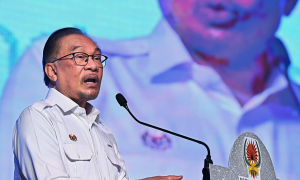Written by Ali Zara

Photo credit: frahmanz / Foter / CC BY-NC-ND
Some economists expect growth in Malaysia, an emerging market economy, to slow down to 4%-5% in 2015-2016, adversely affected by weaker terms of trade and dysfunctional politics, while the recent International Monetary Fund/World Bank annual meetings in Peru have warned of lethargic global growth and the next global recession.
Against such a backdrop, Budget 2016 was unveiled on Oct 23 and which addresses these three challenges:
- Amid the global economic slowdown, Malaysia has to protect its economy to ensure sustainable growth can be achieved
- To increase productivity which comes from more education and training
- To help the lower- and middle-income groups with the rising cost of living
As such, compared to previous national budgets, Budget 2016 dishes out more tax reliefs. More goods are now zero-rated under the goods and services tax (GST), and the minimum wage in the private sector as well as salaries and pensions for civil servants have increased.
Goodies for the man-in-the-street include:
- From 2016 year of assessment, relief for each child below 18 raised to RM2,000 from RM1,000
- Tax relief for parents with children in tertiary education raised to RM8,000 from RM6,000
- RM1,500 tax relief for children with parents over 60 years earning below RM2,000
- RM5,000 relief for medical expenses of parents
- RM950 minimum pension for civil servants with 25 years of service
- RM5.9 billion pumped into BR1M (“Bantuan Rakyat 1Malaysia” or 1Malaysia People’s Aid) for 7.4 million households and people
- Organic soybean-based infant and children milk formula, brown sugar, and many more items to be GST zero-rated
- Private sector’s minimum wage raised by RM100 to RM1,000 in the peninsula and from RM800 to RM920 in Sabah and Sarawak
- Civil servants’ minimum wage raised to RM1,200
- Individuals pursuing certificate, diploma or degree courses in certain fields can claim up to RM7,000 in tax benefits, an increase of RM5,000
For the “super rich”, the personal income tax bracket for the maximum range was raised from the current rate of 25% to 28%. Those with chargeable income of between RM600, 000 and RM1 million will be imposed a maximum tax of 26% and those with more than RM1 million will have to pay a maximum of 28%.
Budget 2016 also unveiled home-ownership programmes. PR1MA has been mandated to build 175,000 housing units to be sold at 20% below the market price. PR1MA and government-linked companies are also to build 9,600 housing units around areas linked to LRT or MRT systems.
However, for businesses apart from the tourism and defense industries, analysts said there is little to cheer about, an indication of having to run a tight ship to keep public finances under control, with the government’s coffers hit by the fall in oil prices, now at less than US$50 (RM213) per barrel. Compared to US$100 (RM426) per barrel previously, Petronas’ contribution to the government was RM62 billion then; now, it is expected to be down to RM31.7 billion in 2016.
On the bright side, revenue from GST far exceeded expectations, projected to be RM39 billion next year, higher than the original figure of RM31 billion. If GST has not been implemented, the government’s deficit would have widened to 4.8% instead of the target 3.1%, and the country’s credit rating would have been downgraded.
Cautious outlook
Meanwhile, AmBank Group chairman Tan Sri Azman Hashim suggested that the government review its budget mid-term to enhance transparency and that it should be more prudent in budget spending, especially as it had over the past few years called on Malaysians to tighten their belt and be more prudent in their spending.
Second Finance Minister Datuk Seri Ahmad Husni Hanadzlah said the direction of oil prices in 2016 will determine whether there is a need to revise Budget 2016. If oil prices go up and therefore more revenue, the budget will be reviewed accordingly and more can be given to the people. If the prices continue to fall, the budget will also be reviewed but cuts will be made because the fiscal deficit cannot exceed 3.2%. The price of US$48 per barrel of crude oil was used in the petroleum revenue assumptions for Budget 2016.
HSBC Global Research is of the view that Malaysia will likely overshoot its highly conservative revenue and expenditure projections in 2015 and 2016 and warned that the government may miss its budget deficit targets of 3.2% for 2015 and 3.1% for 2016.
It also said that overly optimistic projections on GST collections and low operating expenditure leave the government little room for error. It noted the risks are that Malaysia’s slowdown in 2016 may turn out to be more significant than what the government assumes.
In the very near term, it said, Budget 2016 may add a fillip to Malaysian markets with factors such as BR1M handouts, minimum wage increases and the list of sizable investment projects potentially seen as providing a boost to the weakening demand. But it doubts how long any upturn in sentiment can last, pointing out the national budget did not address the current high level of caution among consumers, particularly regarding the labor market outlook.
So it is difficult to see the handouts and wages suddenly translating into sustained stronger private consumption, it said, noting that higher minimum wages will also be an additional burden on firms, many of which are already grappling with excess capacity amid a decline in both external and domestic demand as well as rising import costs due to the ringgit’s weakness.
Read More:
"ExpatGo welcomes and encourages comments, input, and divergent opinions. However, we kindly request that you use suitable language in your comments, and refrain from any sort of personal attack, hate speech, or disparaging rhetoric. Comments not in line with this are subject to removal from the site. "




















If milk fomula is expensive , dont buy. Mentri cakap gunakan breast milk fomula is free n also no gst. 5
Corrupted budget, rakyat killer budget , for BN coffin ,